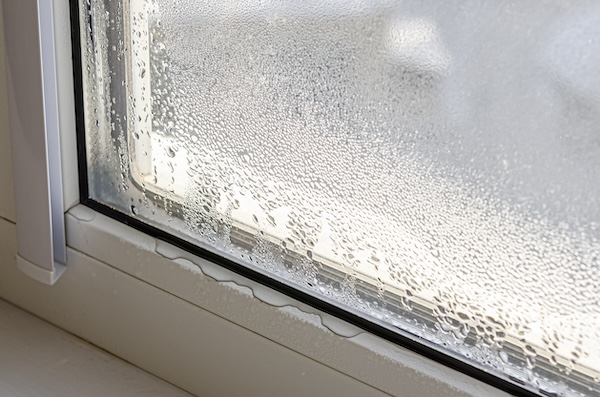Ever wonder how long do windows last before becoming a headache? Truth is, most homeowners don’t even think about window replacement until they’re hit with drafts or rising energy bills. I’ve run Columbus Exterior—specializing in window replacement and installation for years now. Trust me, I’ve seen every scenario imaginable. So, let’s break it down clearly: knowing when to replace your windows saves you both stress and cash.
How Long Do Vinyl Windows Last?
Vinyl windows are popular for a reason—they typically last between 20-40 years. They’re durable, reliable, and require minimal maintenance. However, lifespan greatly depends on how you treat them. Here are some easy ways to stretch their life:
-
Regular cleaning using mild soap and water.
-
Checking and fixing seals to prevent air leaks.
-
Quickly addressing issues like foggy or cloudy glass.
Last year, we replaced windows that were installed in the early ’80s. Believe it or not, they lasted nearly four decades! With just a little care, your vinyl windows could easily exceed expectations.
Real Talk: How Long Do House Windows Last?
Let’s get specific. Windows have varied lifespans depending on the material used:
-
Vinyl Windows: 20-40 years (easy maintenance, cost-effective)
-
Wood Windows: Around 15-20 years (beautiful, but need more upkeep)
-
Aluminum Windows: Usually 20-25 years (durable but can corrode easily)
We recently replaced wood windows for a home in Columbus that was just 15 years old. These windows looked great initially but had deteriorated quickly due to neglect. Wood is beautiful, but without care, it doesn’t stand a chance against weather conditions.
7 Signs It’s Definitely Time to Replace Your Windows
If you’re wondering if it’s time to invest in window replacements, look out for these clear indicators:
1. Drafty Rooms
Feeling cold air sneaking into your home is a huge red flag. Windows should seal tightly; drafts indicate they’re failing to insulate properly.
2. Rising Energy Bills
If you’ve noticed your energy bills climbing steadily, aging windows could be the culprit. Old or poorly insulated windows make your HVAC system work overtime, wasting energy and money.
3. Difficulty Opening and Closing
Windows should open and close smoothly. If it feels like an arm-wrestling match every time, it’s definitely time for replacements. It shouldn’t feel like a workout.
4. Condensation Between Panes
Foggy or cloudy windows mean your window seals are compromised. Moisture trapped between panes is a clear sign the insulation properties are compromised.
5. Visible Damage and Decay
Cracks, chips, rotting frames, or warped windows aren’t just eyesores—they affect functionality. If your windows are visibly deteriorating, don’t delay replacements.
6. Increased Noise
Noticing more outdoor noise lately? Windows lose their soundproofing capabilities as they age. If your quiet neighborhood suddenly seems louder, check your windows.
7. Age of Your Windows
If your windows are nearing the two-decade mark, it’s wise to get them checked professionally. Age alone is a good reason to consider replacements, even if everything seems okay at first glance.
Ignoring these warning signs is like ignoring a check-engine light—you might get by for a while, but eventually, you’ll regret it.
Common Window Types and Lifespan Breakdown
Different window materials offer varying lifespans and require different levels of care. Vinyl windows are the most popular, lasting 20-40 years with minimal maintenance, making them highly cost-effective. Wood windows typically last about 15-20 years, offering unmatched beauty but needing consistent care to combat decay and weather damage. Aluminum windows generally hold up for about 20-25 years, providing strength and reliability, though they can be prone to corrosion without proper maintenance. Understanding these differences helps you plan for maintenance and know when replacements will be necessary.
Real-Life Story: A Cautionary Tale
I recently visited a homeowner who hadn’t replaced her windows in nearly 30 years. Her energy bills had nearly doubled, and rooms were noticeably colder. After we replaced her windows at Columbus Exterior, her home felt warmer, quieter, and her energy bills dropped sharply. She wished she’d done it sooner—don’t let that be your story.
The Bottom Line: Don’t Wait Until It’s Too Late
Windows might not seem glamorous, but they play a critical role in your home’s comfort, aesthetics, and energy efficiency. At Columbus Exterior, we have often noticed that replacing windows early stops bigger problems later.
If your windows are showing signs of aging or you’re noticing some of these warning signs, don’t delay. Contact Columbus Exterior for a professional window inspection. They can also advise you on the best replacement options.
Knowing how long do windows last is just the first step—acting on that knowledge is what truly makes the difference. Let’s make your home comfortable, beautiful, and energy-efficient again.
FAQs You Actually Care About
Q1: How long do vinyl windows last compared to wood?
Ans: Vinyl windows typically last significantly longer—usually 10-20 years more than wood windows. They’re easier to maintain, saving both time and money.
Q2: Do windows lose efficiency over time?
Ans: Absolutely. Windows can lose efficiency over time. Weather exposure and wear and tear cause this. As a result, heating and cooling costs go up.
Q3: Can I prolong my windows’ lifespan?
Ans: Definitely. Regular maintenance, fast repairs, and regular cleaning can increase how long your windows last and how well they work.

